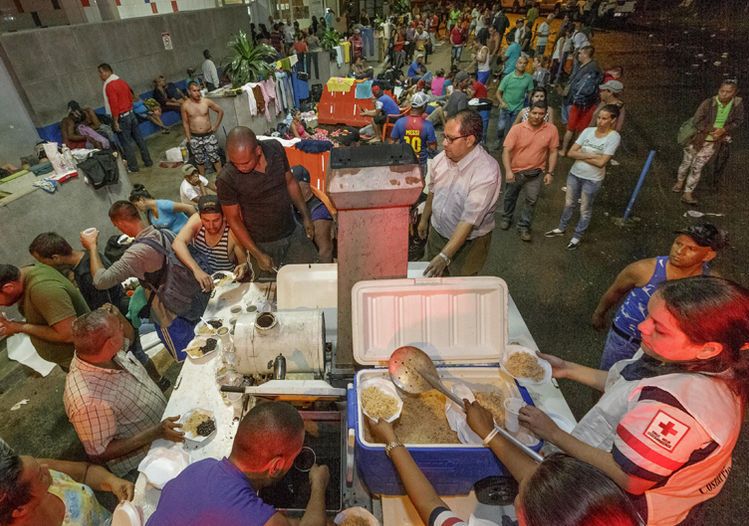-
Tips for becoming a good boxer - November 6, 2020
-
7 expert tips for making your hens night a memorable one - November 6, 2020
-
5 reasons to host your Christmas party on a cruise boat - November 6, 2020
-
What to do when you’re charged with a crime - November 6, 2020
-
Should you get one or multiple dogs? Here’s all you need to know - November 3, 2020
-
A Guide: How to Build Your Very Own Magic Mirror - February 14, 2019
-
Our Top Inspirational Baseball Stars - November 24, 2018
-
Five Tech Tools That Will Help You Turn Your Blog into a Business - November 24, 2018
-
How to Indulge on Vacation without Expanding Your Waist - November 9, 2018
-
5 Strategies for Businesses to Appeal to Today’s Increasingly Mobile-Crazed Customers - November 9, 2018
Central American nations announce deal on Cuban migrants
SAN JOSE, Costa Rica (AP) – Central American nations have reached a deal to let the first of thousands of stranded Cuban migrants continue their journey north toward the United States next month, officials said Monday.
Advertisement
Pope Francis delivers his blessing during the Angelus prayer, from his window overlooking St. Peter’s Square at the Vatican on Sunday.
It is estimated that around 5,000 Cubans are stuck on the border with Costa Rica, according to The Times.
Last week, the Nicaraguan government suggested that the US government arrange an airlift to transport the migrants directly from Costa Rica to the USA, the news outlet added.
“I ask the countries of the region to generously resume efforts to find a quick solution to this humanitarian drama”, Pope Francis remarked, as quoted in Reuters’ report.
Speaking ahead of his February visit to Mexico, the Pope stressed that many Cuban migrants have fallen prey to human traffickers.
Advertisement
The Guatemalan government, which hosted a diplomatic meeting earlier in the day to consider the issue, described it as a “pilot” program and said a work group has been tasked with coordinating logistics. By late September 2015, close to 30,000 Cubans had arrived at ports-of-entry along the Texan-Mexican border, according to the Houston Chronicle. Costa Rica stopped giving out transit visas to Cubans on December 18. However, Guatemala’s stance may change;; as Costa Rica’s president explained a few days ago, Guatemala’s President Elect Jimmy Morales (set to take office in January) may hold a different position from that of current President Alejandro Maldonado, and may decide to receive the Cuban migrants.





























